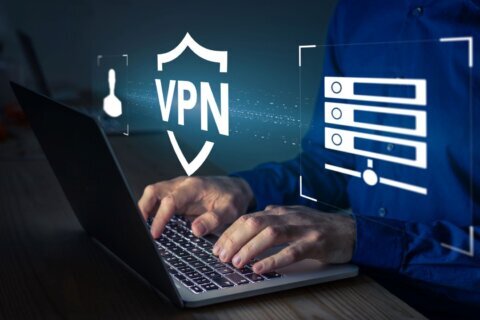Q: What are the pros and cons of using Windows BitLocker?
A: You can do many things to help keep your computer secure, and encryption is one of those options.
Various versions of Windows include the option to use BitLocker, which is Microsoft’s built-in encryption tool.
What is encryption?
Encryption is a security layer that will scramble or “encrypt” information so that only those with a special key can “decrypt” it to return it to its original form.
Encryption, or ciphers, go back to ancient times as a method of protecting sensitive information.
A simple version known as the Atbash cipher reversed the alphabet. A became Z, B became Y and so on. Knowing the “key” to this information is what allowed others to unscramble messages.
Today, encryption is used at a very sophisticated level, and retaining the key that’s only applicable to your computer is crucial to being able to access information.
Windows BitLocker
Until recently, if you wanted to use BitLocker, you would need to be running a version of Windows other than Home (Pro, Enterprise or Education).
This has changed with Windows 11 version 24H2, which started shipping from computer manufacturers selling Copilot+ PCs since June 18.
This preinstalled version of Windows has BitLocker enabled, so it’s important to know where the key is stored and backed up.
Microsoft has not officially published the date of this update for existing Windows 11 computers, but most experts think it will be in the September/October range.
This doesn’t mean that if you upgrade to version 24H2 it will automatically enable BitLocker, as it’s only supposed to do so with fresh installations or reinstallations.
Microsoft is reducing the hardware requirements for using BitLocker, so older systems may also be able to start using it.
Pros of BitLocker
The obvious benefit of enabling encryption is to keep your sensitive information secure and, since it’s not a third-party program, it integrates with Windows for easier use.
BitLocker also works with the Trusted Platform Module, which provides hardware-based security to store your keys.
Cons of BitLocker
It’s pretty obvious why many corporate users have BitLocker enabled (compliance to data security standards, etc.), but it could be a bit more hassle than it’s worth for nontechnical home users.
Asking a nontechnical user to know things about encryption keys and proper storage or backup of these keys is a bit much.
Not having the key can lock legitimate users out of their own data and using BitLocker can significantly impact performance (up to 45%) in some cases.
If something happens to the Trusted Platform Module or you have other significant issues, troubleshooting can become much more complex and time consuming.
Backup is critical
It’s important to know if your computer has BitLocker enabled and, if so, to ensure that you have two critical backups in place.
The first is your encryption key and the second is your critical data. Many glitches can lead to the need for your key outside of normal use, but it’s advisable when using encryption to assume that a catastrophe that renders your data inaccessible is possible.
An automatic backup of your data to an online service such as Carbonite is something every BitLocker user should consider, as any locally-attached backup drives will also be encrypted.
Ken Colburn is founder and CEO of Data Doctors Computer Services. Ask any tech question on Facebook or X.
Get breaking news and daily headlines delivered to your email inbox by signing up here.
© 2024 WTOP. All Rights Reserved. This website is not intended for users located within the European Economic Area.







